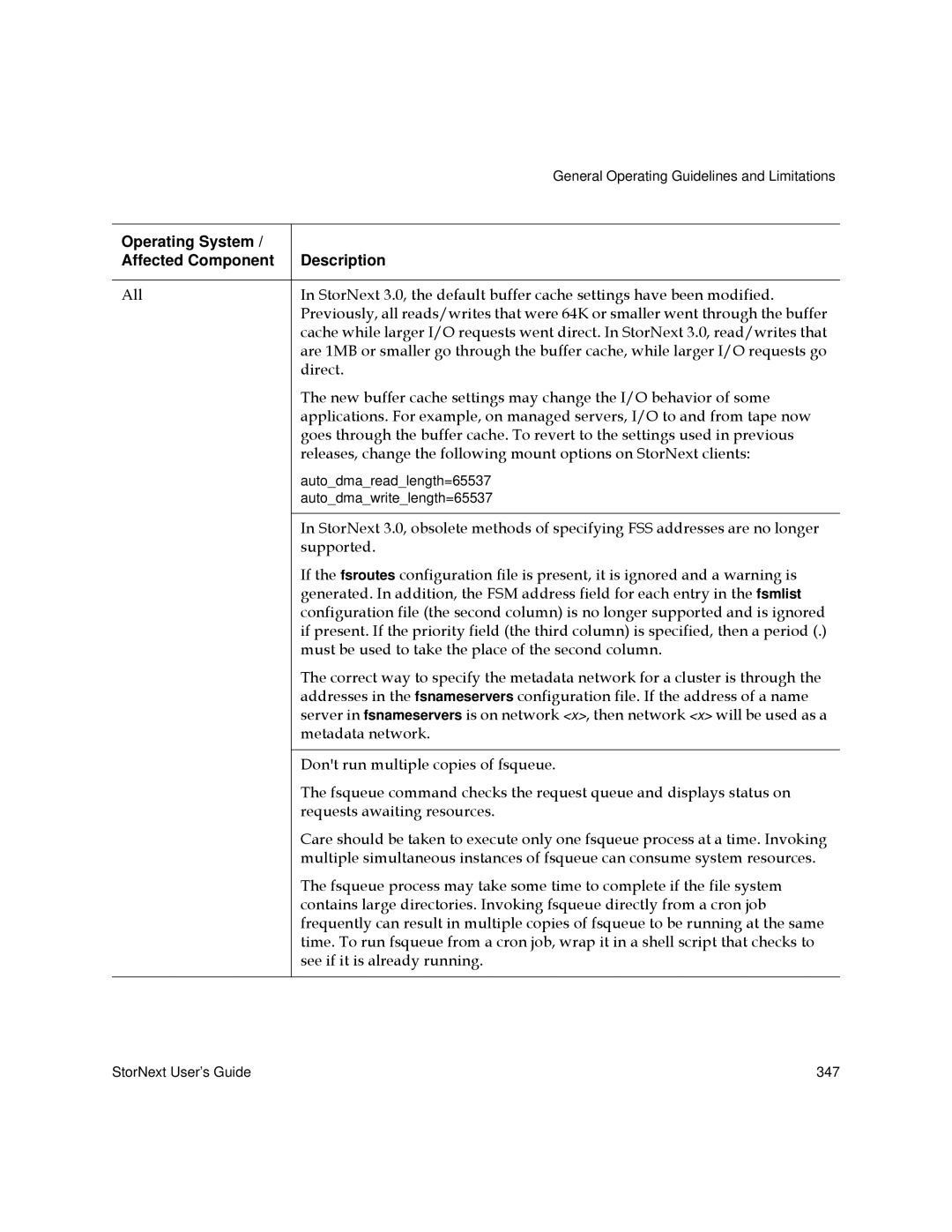| General Operating Guidelines and Limitations |
|
|
Operating System / |
|
Affected Component | Description |
|
|
All | In StorNext 3.0, the default buffer cache settings have been modified. |
| Previously, all reads/writes that were 64K or smaller went through the buffer |
| cache while larger I/O requests went direct. In StorNext 3.0, read/writes that |
| are 1MB or smaller go through the buffer cache, while larger I/O requests go |
| direct. |
| The new buffer cache settings may change the I/O behavior of some |
| applications. For example, on managed servers, I/O to and from tape now |
| goes through the buffer cache. To revert to the settings used in previous |
| releases, change the following mount options on StorNext clients: |
| auto_dma_read_length=65537 |
| auto_dma_write_length=65537 |
|
|
| In StorNext 3.0, obsolete methods of specifying FSS addresses are no longer |
| supported. |
| If the fsroutes configuration file is present, it is ignored and a warning is |
| generated. In addition, the FSM address field for each entry in the fsmlist |
| configuration file (the second column) is no longer supported and is ignored |
| if present. If the priority field (the third column) is specified, then a period (.) |
| must be used to take the place of the second column. |
| The correct way to specify the metadata network for a cluster is through the |
| addresses in the fsnameservers configuration file. If the address of a name |
| server in fsnameservers is on network <x>, then network <x> will be used as a |
| metadata network. |
|
|
| Don't run multiple copies of fsqueue. |
| The fsqueue command checks the request queue and displays status on |
| requests awaiting resources. |
| Care should be taken to execute only one fsqueue process at a time. Invoking |
| multiple simultaneous instances of fsqueue can consume system resources. |
| The fsqueue process may take some time to complete if the file system |
| contains large directories. Invoking fsqueue directly from a cron job |
| frequently can result in multiple copies of fsqueue to be running at the same |
| time. To run fsqueue from a cron job, wrap it in a shell script that checks to |
| see if it is already running. |
|
|
StorNext User’s Guide | 347 |
